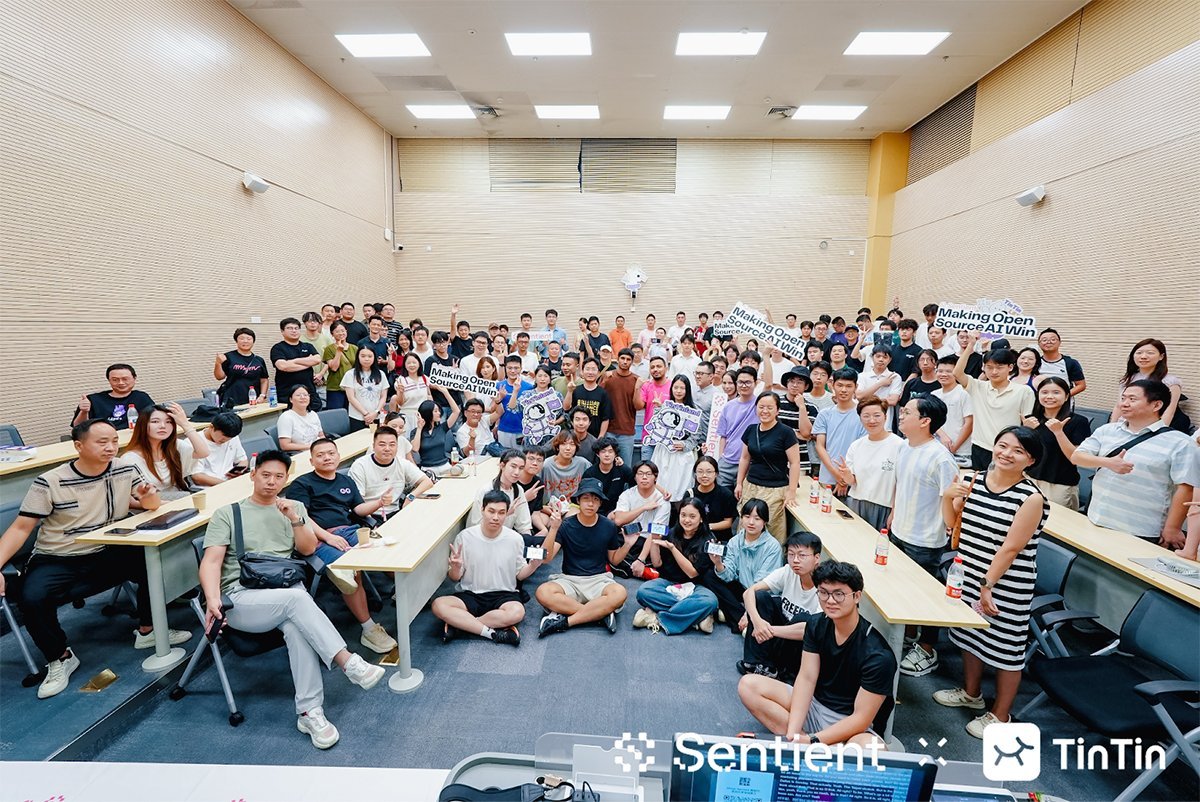This week, @SentientAGI's momentum is clear: research and evaluation + ecosystem expansion, a dual focus.
On one hand, there's NeurIPS 2025 and MindGames Arena, where they're using game theory and collaboration to test "ToM" and agent collaboration.
On the other hand, there's the Open AGI Symposium East Asia Tour: October 24th, Tsinghua Science Park, Beijing, October 26th, Shanghai Jiao Tong University, and October 28th, Seoul, bringing together universities, researchers, developers, and businesses.
Siyuan believes that for open-source AGI to outperform closed-source AI, it relies not on slogans but on the combined efforts of three key elements.
1. Standardized Arena
Don't just focus on benchmarks; verify reasoning, collaboration, and robustness in real interactive tasks (MindGames is on the right track).
2. Networked Execution Layer
Let models, agents, data, and tools form a "settable and composable" intelligent network (rather than isolated demos).
3. Academia × Industry × Community Integration
Let papers, systems, and scenarios resonate on open protocols. Use offline events to bring people together and online benchmarks to demonstrate results.
For those interested in participating (not investment advice):
• Play MindGames: Start with ToM/collaborative agents and give your team a "real-world evaluation."
• Watch Symposium: Face the needs of researchers and frontline professionals directly, avoiding detours.
• Focus on Researcher Spotlight: Complete the "paper → system → scenario" closed loop.
• Put your agent/ Connecting tools to the open network: Prove their value through actual usage and contribution, not by chasing buzzwords.
While giants continue to accelerate their development in a black box, the key variables for open source success lie in speed, standards, and network effects.
@SentientAGI's recent actions are, at least in part, lowering the bar and setting the stage.
The watershed moment isn't whether it will happen, but whether we can build momentum.


